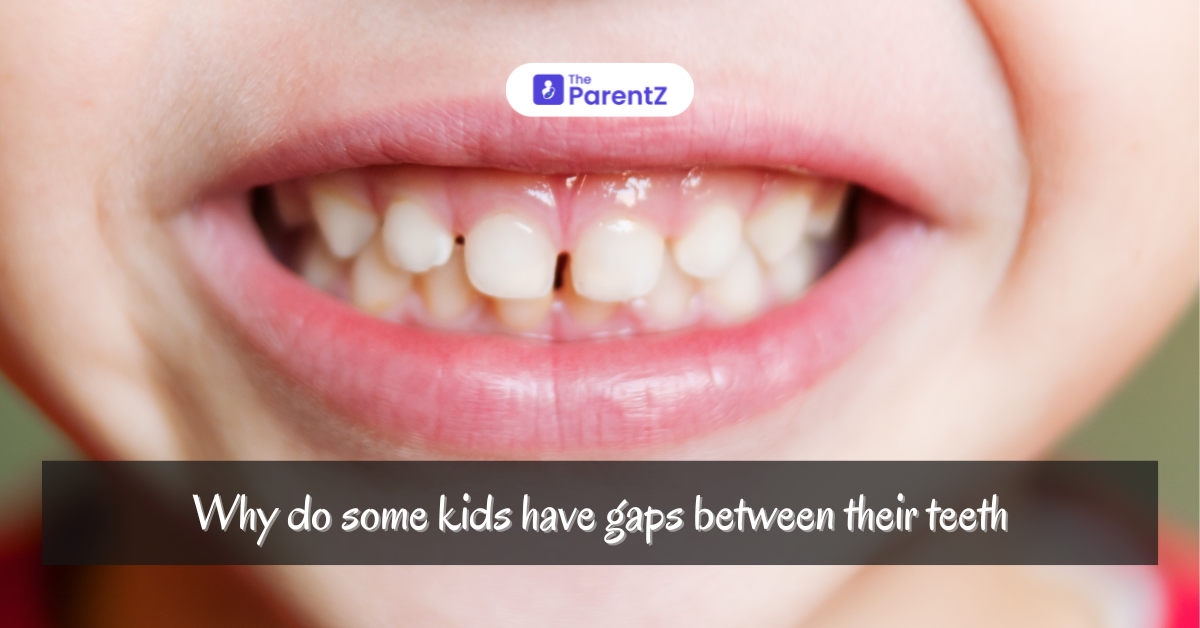If you've noticed gaps between your child's teeth, you may wonder if it's normal or a sign of a bigger problem. This condition, known as "diastema," is common in children and can occur for a variety of reasons. In many cases, these gaps close naturally over time as permanent teeth come in, but understanding the cause of the gaps is important for parents to know what to expect. Let’s explore why some kids have gaps in their teeth, when it may need attention, and how it factors into your child’s overall dental health.
What Is Diastema?
Diastema refers to a noticeable space between two or more teeth, commonly seen between the front two upper teeth. Gaps can also appear in other areas of the mouth. It's important to note that diastema is quite common in children, especially during certain stages of tooth development. As children grow and their primary (baby) teeth fall out to make room for permanent teeth, gaps may appear temporarily.
But not all gaps are created equal—while some are part of the natural growth process, others may indicate underlying dental issues that require treatment. The key is determining whether the gap is temporary or part of a more permanent problem.
Common Causes of Gaps in Children's Teeth
1. Natural Development
Gaps are often part of a child's normal tooth development. As primary teeth, which are smaller than permanent teeth, start to fall out, gaps can form. Once the permanent teeth grow in, these gaps often close on their own.
2. Mismatched Tooth and Jaw Sizes
Sometimes the size of a child's teeth may not match the size of their jaw. If the jaw is relatively large compared to the teeth, gaps are more likely to occur. This is known as a discrepancy in tooth-to-jaw ratio and is one of the most common reasons for diastema.
3. Frenulum Attachment
The frenulum is the small piece of tissue that connects the upper lip to the gums. In some children, the frenulum may be larger or extend lower between the two front teeth, creating a gap. While this may be a cosmetic issue, it can sometimes interfere with speech or feeding, necessitating treatment.
4. Thumb Sucking
Prolonged thumb-sucking in young children can affect the position of their teeth. The pressure exerted on the teeth over time may lead to gaps forming, particularly in the front teeth.
5. Tongue Thrusting
Some children develop a habit of pushing their tongue against the teeth when swallowing, which can push the teeth forward, creating gaps. This is referred to as tongue thrusting and may require treatment if it persists.
6. Missing Teeth
Sometimes, children are born with missing permanent teeth, a condition known as congenitally missing teeth. If permanent teeth fail to develop, gaps will remain, often requiring orthodontic intervention.
7. Periodontal Disease
Though rare in children, advanced gum disease can cause gaps to form by weakening the bone and tissues around the teeth. In such cases, professional treatment is essential.
Do Gaps in Teeth Need to Be Treated?
Not all gaps require treatment, especially in younger children. In many cases, as permanent teeth come in, gaps close naturally. However, if the gaps are due to issues like missing teeth, tongue thrusting, or an abnormally large frenulum, orthodontic or surgical intervention may be necessary. Orthodontists often recommend braces or other orthodontic treatments to close gaps and correct alignment issues, particularly if they affect the child’s bite or ability to speak clearly.
Conclusion
Gaps in children's teeth, while sometimes worrying for parents, are often part of the natural process of growing up. For many kids, diastema will resolve on its own as their permanent teeth come in. However, it’s important to monitor the gaps and consult your dentist if you suspect an underlying issue. Identifying the cause of the gaps early can help ensure your child’s smile develops healthily and confidently. Whether it's a natural phase of development or a condition that requires intervention, the right dental care can make all the difference in keeping your child's teeth healthy and strong.








Be the first one to comment on this story.